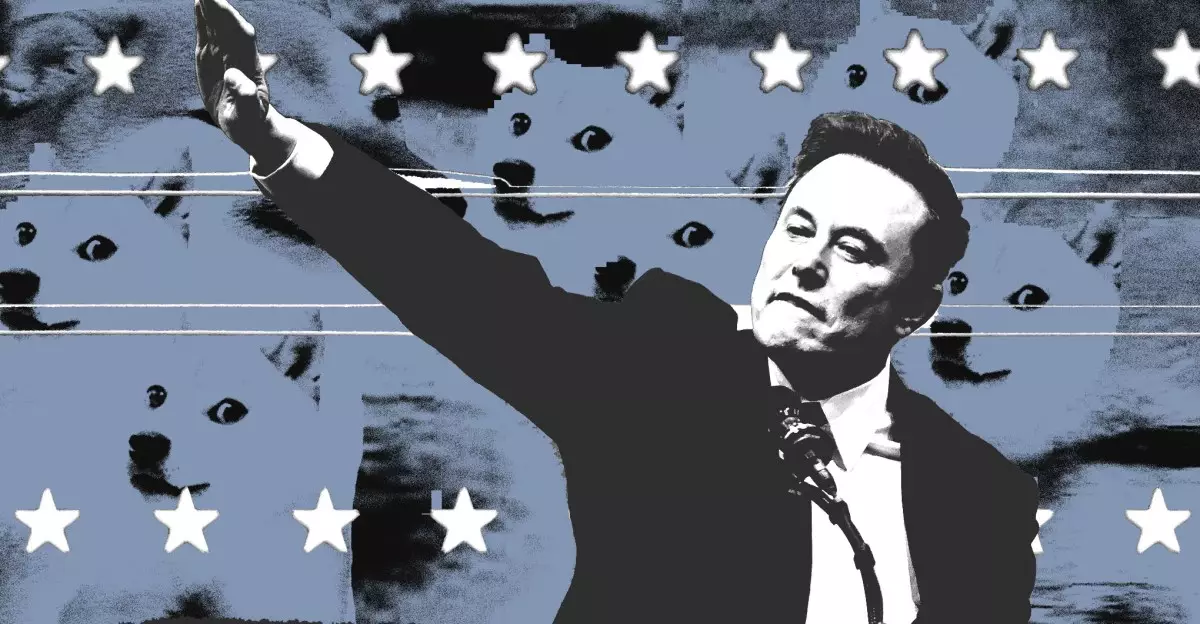In a recent exposé by the Wall Street Journal, the actions and ideology of Marko Elez, a 25-year-old staff member of the Department of Government Efficiency (DOGE), have raised significant eyebrows. Elez’s involvement in racially charged rhetoric and proposals for a “eugenic immigration policy” has highlighted troubling trends among younger political staffers, particularly those linked to radical right ideologies. The accounts linked to him reportedly contained posts disparaging various ethnic groups and advocating for extreme policies, including repealing the Civil Rights Act. This revelation not only led to Elez resigning from his government role but also shines a spotlight on the pervasive normalization of extreme beliefs in certain political circles.
Elez’s resignation is emblematic of a larger trend where online platforms have become breeding grounds for radical ideas. The now-deleted X account under his name, which called for the displacement of skilled Indian workers in favor of artificial intelligence, reflects a disregard for diversity in the workforce and a troubling ideation that technology could replace entire demographics. Such viewpoints, often articulated by a group of radical right-wing individuals, have gained traction in an increasingly polarized political environment, where incendiary rhetoric is not only accepted but sometimes celebrated.
The online interactions of individuals like Elez suggest they exist within a bubble that amplifies extreme perspectives—one that is increasingly detached from the realities of diversity and multi-culturalism in modern society. Posts promoting eugenic theories and white supremacy exploit the Internet’s potential to connect those with fringe beliefs. This cross-pollination of ideas contributes to the rise of a certain “groyperfication,” a term coined to describe the shift toward more openly racist and conspiratorial dialogues among young conservatives.
Elez’s case raises critical questions about the influence of such radical beliefs in governmental operations. His role in DOGE, a department created to streamline federal functions, was intended to promote efficiency. However, the underlying mission of the department, which purportedly includes rooting out diversity and inclusion initiatives, indicates a broader ideological agenda aligned with the extreme beliefs Elez espoused online.
The trajectory for DOGE under the leadership of figures like Elon Musk seems to involve dismantling various programs that aim to promote equality across federal institutions. This raises serious concerns about the ethical implications of policymaking influenced by individuals who prefer adherence to convergence driven by ethnonationalist thinking over inclusivity and equity. Elez’s work, and by extension that of DOGE, appears focused on prioritizing a monolithic idea of worthiness that undermines fundamental democratic values.
What sets Elez’s situation apart from past controversies in political staffing is the current zeitgeist surrounding political discourse. While resignations linked to revealing racist comments have been recorded historically, the environment today is marked by a more acceptable form of extremism within certain factions of the political right. High-profile appointments like that of Darren Beattie, who has a history of engagement with white nationalist circles yet continues to secure roles within government, demonstrate a worrying trend where the lines of acceptability are increasingly blurred.
Beattie’s declarations on social media underscore an ideology that favors a homogenous ruling class, based largely on adverse narratives about diversity aimed at discrediting civil rights endeavours. This rhetoric signals not only a disconnection from the principles of equality but also a troubling willingness to ignore the hard-won progress achieved by marginalized groups in America.
As discussions about immigration, civil rights, and policy-making evolve, vigilance is paramount to safeguard against the insidious normalization of radical ideologies within government ranks. The case of Marko Elez should serve as a clarion call for accountability within the political apparatus and awareness among the electorate regarding the influence of extremist views in shaping policy agendas. The so-called “groyperfication” of young conservatives is not simply a matter of ideological debate—it poses a significant threat to the foundational principles of equality and democracy that govern society. Engaging actively with these issues is essential in order to foster a political landscape that genuinely represents the diverse tapestry of the American populace.


Leave a Reply